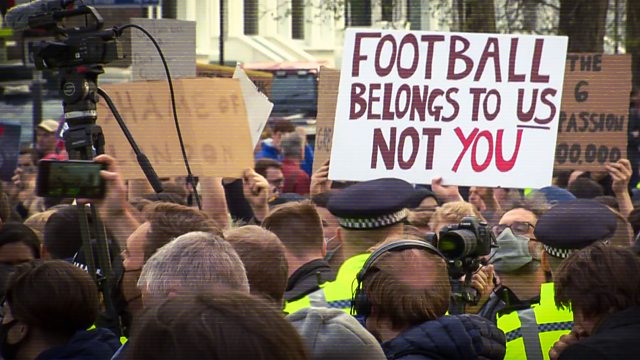
Kicking Off: The Rise and Fall of the Super League
Last year, football almost changed forever. But just three days after its announcement, the European Super League was dead. Why did the owners think they could get away with it?
In April 2021, football nearly changed forever when 12 of Europe's biggest clubs, including the English Premier League's 'big six', announced they were forming their own breakaway competition, a rival to the UEFA Champions League. This European Super League was to be governed by its 12 founding clubs, who would remain permanent members in a semi-closed competition and were therefore guaranteed to triple their earnings from UEFA. According to the billionaires behind the plan, this proposal was for the good of the game, and the extra millions they earned would be spread throughout European football for the benefit of the beautiful game. However, not everyone was convinced. The fans and media went ballistic, players within the 'big six' came out against the plan, and even the government threatened to introduce legislation to stop the proposal. The Super League was widely viewed as a cynical cash grab by owners desperately trying to keep up with the wealth of state-owned clubs such as PSG and Man City, and in addition recoup lost revenue due to the Covid-19 pandemic. The Super League was widely criticised in the UK for abandoning the game's fundamental principle, that any team can climb to the very top through on-field performance alone. Unprepared for the visceral backlash, the English clubs backed out and just three days after its inception the European Super League was dead - the fans had won. But what really led to these owners forming an unlikely alliance of American hedge funds, Russian oligarchs, European industrial tycoons and Gulf royals to attempt to seize control of the revenues of the world's most popular sport? And how could a plan that would have changed the very essence of football appear out of nowhere?
